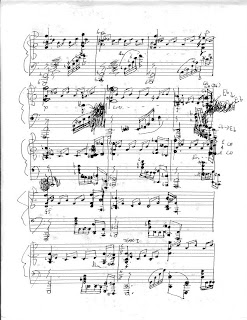Our organization shall consist of twelve gloriously titled leaders, twelve being properly symbolic for our purposes. Around these titles shall be formed rituals and duties to be done for the good of the society. Furthermore, from these titles and their associated functions, the society will develop its Grand Charter, declaring all matters of import to the society. Just how the titles find their respective outworkings is limited to the parameters already set forth, including Megalomania, Satire, Christianity, and Art.
More of our chivalric code is discernible in our name, most obviously by the use of the word "chivalric." Chivalry, being a more or less dead virtue, is important to us, for it is imperative that we elevate dead virtues. It is also very medieval, and it implies knighthood, which was very important from the start. Even the Most Holy Order of Whidbey Islanders used a knightly symbol, the Cross of St. Olaf, so we can see that I would never dream of being part of a secret society that does not promote knighthood. Of course, we also realize that not all secret societies dealing with knighthood are noble and virtuous.
Next, the word "Order" has been present in both The Most Holy Order of Whidbey Islanders and The Chivalric Order of the Sword-Organum. This is an immensely important word, as it implies monasticism. Furthermore, together with chivalry, it evokes one of my favorite images, that of the warrior monk. All the cool secret societies trace their origins back to obscure medieval orders. Medievalism is essential.
Why a sword-organum? What do I mean by "sword-organum?" Let us recall the seventeenth verse of the sixth chapter of Ephesians: "Take the helmet of salvation and the sword of the Spirit, which is the word of God." There is our sword. Also, I can make a sword look like a cross, so how could I do any other? An organum can be one of three things, and I mean it in all three ways. First, it is a primarily medieval musical style. Second, it is a set of principles for investigation. Third, it can (from its Greek root) refer to an instrument for investigation. This all ties together in our symbol, which happens to be replete with symbolism of its own, in particular numerical symbolism:

I now humbly request that all readers not part of the Chivalric Order of the Sword-Organum forget all I have said here today. To facilitate such an end, here is a photograph I found. It makes me wish I had not been asleep when it was taken:













